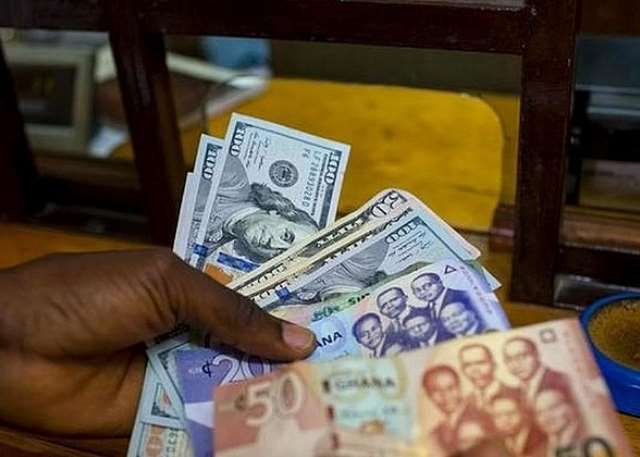The Ghanaian Cedi has exhibited a sustained period of appreciation against the United States dollar, reaching a buying rate of GHS12.62 and a selling rate of GHS13.37 per dollar as of May 14, 2025. This positive trend signifies a strengthening of the Cedi’s value relative to the dollar, a development likely influenced by various economic factors such as increased exports, foreign investment inflows, or effective monetary policies. The data, sourced from Cedirates.com, a reliable platform for currency information in Ghana, paints a picture of a healthier Cedi and potentially improved purchasing power for Ghanaians engaging in dollar-denominated transactions. This appreciation contrasts with periods of depreciation where the Cedi loses value against the dollar, requiring more cedis to acquire the same amount of dollars.
At forex bureaus, which provide currency exchange services directly to the public, the Cedi is trading within a slightly different range. Individuals exchanging dollars for cedis can expect a rate of GHS13.50 per dollar, while those converting cedis to dollars will receive GHS13.85 per dollar. This difference, known as the bid-ask spread, represents the profit margin for the forex bureaus and reflects the dynamics of supply and demand at the retail level. The slightly higher rates at forex bureaus compared to the interbank market are standard practice due to the added operational costs and service provision involved in retail currency exchange.
The interbank market, where banks trade currencies amongst themselves in larger volumes, offers a slightly more favorable exchange rate. Here, the Cedi is trading at GHS12.59 for buying dollars and GHS12.61 for selling dollars. This market generally features narrower spreads due to the higher volume and lower overhead costs involved in transactions between financial institutions. The interbank rate serves as a benchmark for currency valuation and influences the rates offered at forex bureaus and other exchange platforms.
The Cedi’s performance against other major currencies, the British Pound and the Euro, also reveals a picture of relative strength. The average exchange rate for converting pounds to cedis stands at GHS16.59, while converting cedis to pounds costs GHS17.70. Similarly, the Euro is trading at GHS14.02 for exchanging euros for cedis and GHS14.95 for the reverse transaction. These rates, similar to the dollar exchange rates, demonstrate the Cedi’s current valuation against these currencies, with the bid-ask spread again reflecting the difference between buying and selling rates. The Bank of Ghana’s interbank market quotes the Pound selling at GHS16.76 and the Euro at GHS14.09, further highlighting the variations across different market segments.
Money transfer services, such as LemFi and Afriex, offer competitive exchange rates for remittances from the US or the UK to Ghana. For dollar transfers, LemFi provides a rate of GHS12.65 per dollar, while Afriex offers a slightly more attractive rate of GHS12.34. For British Pound transfers, LemFi’s rate is GHS16.73, and Afriex offers GHS16.49. Regarding Euro transfers, Afriex provides a rate of GHS13.94, while LemFi offers GHS14.15 per euro. These specialized remittance services often provide more favorable rates compared to traditional banking channels, catering to the needs of individuals sending money across borders.
Finally, for digital subscriptions like Netflix, Spotify, or Apple Music, using Visa and Mastercard incurs exchange rates of GHS13.48 and GHS13.54, respectively. These rates, applied automatically during online transactions, are typically close to the prevailing market rates but may include small processing fees or variations depending on the card issuer and payment platform. The relatively close alignment of these rates with forex bureau rates suggests a competitive landscape for international digital transactions. Overall, the Ghanaian Cedi’s performance against major currencies presents a positive outlook as of May 14, 2025, with its appreciation against the dollar and stable exchange rates against the Pound and Euro reflecting potential economic stability and improved market conditions.














